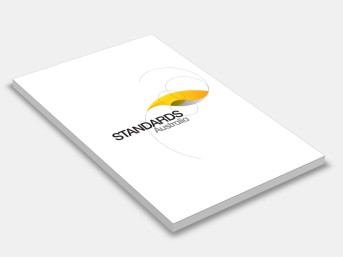AS/NZS 4745:2012 Code of practice for handling combustible dusts
Standards Australia/Standards New Zealand
Supersedes: AS/NZS 4745:2004 Code of practice for handling combustible dusts
Draft Designation: DR AS/NZS 4745Amended by: AS/NZS 4745:2012 AMDT 1 Code of practice for handling combustible dusts
This Standard was prepared by the Joint Standards Australia/Standards New Zealand Committee MS-011, Classification of Hazardous Areas, with the assistance of the Joint Subcommittee MS-011-01, Combustible Dusts, to supersede AS/NZS 4745:2004.
This Standard incorporates Amendment No. 1 (June 2013). The changes required by the Amendment are indicated in the text by a marginal bar and amendment number against the clause, note, table, figure or part thereof affected.
This Standard is intended to assist those industries which may have risks associated with the presence of combustible dusts as part of their process, in minimizing the risk of injury, death or loss of property to fire and/or explosion. It sets out good design and management principles and practices for the construction, operation and maintenance of manufacturing and processing plants and associated transportation and storage systems.
The objective of this revision is to update the referenced documents and bring the Standard into line with current editorial practices. This revision also modifies the classification for levels of protection in Section 7 to align with the classifications used in referenced Standards.
The technical content of this Standard is based on but not equivalent to EN 1127-1, Explosive Atmospheres—Explosion-prevention and Protection, Part 1: Basic Concepts and Methodology.
The term ‘informative’ has been used in this Standard to define the application of the appendix to which it applies. An ‘informative’ appendix is only for information and guidance.
Originated as AS/NZS 4745:2004. Second edition 2012. Reissued incorporating Amendment No. 1 (June 2013).Contents:
Section 1: Scope And General
Section 2: Ohs And Risk Management
Section 3: Hazard Assessment
Section 4: Safety Requirements
Section 5: Determining The Presence Of Effective Ignition Sources
Section 6: Plant Design
Section 7: Detailed Design And Operational Issues
Section 8: Emergency Management
Appendix A: Tools For Use In Potentially Explosive Atmospheres
Appendix B: Bibliography
Classification of hazardous areas.
MS-011
Auckland Regional Chamber of Commerce; Australian Chamber of Commerce and Industry; Australian Industry Group; Australian Institute of Petroleum; Australian Paint Manufacturers Federation; Australian Petroleum Production and Exploration Association; Aviation and Marine Engineers Association; Bureau of Steel Manufacturers of Australia; Department of Labour, New Zealand; Department of Natural Resources and Mines, Qld; Electrical Contractors Association of New Zealand; Energy Networks Association; Engineers Australia; Environmental Protection Authority, New Zealand; Gas Association of New Zealand; Institute of Electrical Inspectors; Institute of Instrumentation, Control&Automation, Australia; LPG Australia; Ministry of Economic Development, New Zealand; National Electrical and Communications Association; New Zealand Oil Refining Companies; Responsible Care New Zealand; Royal Australian Chemical Institute; WorkCover New South Wales; WorkSafe Victoria.
